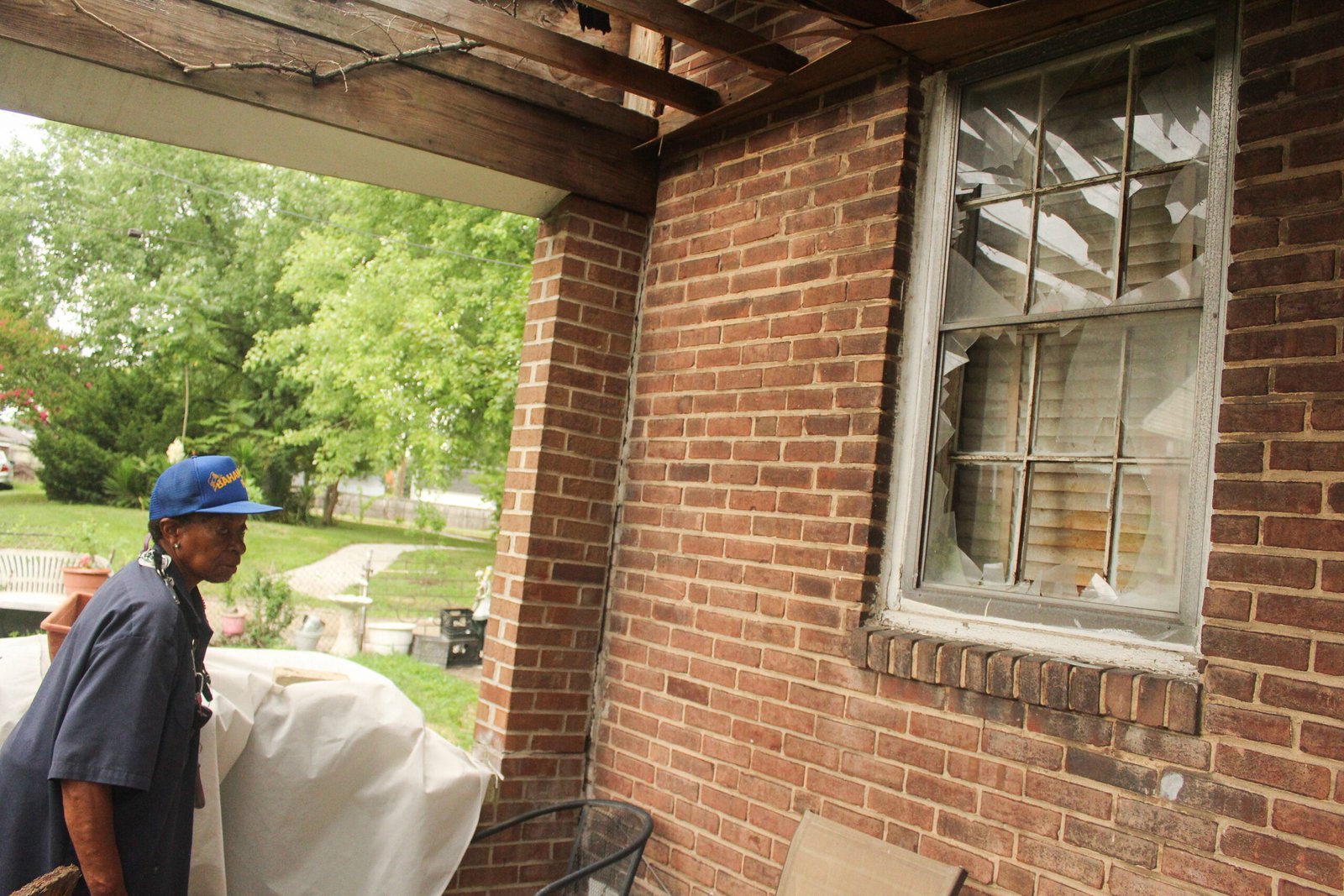First published Tuesday, Aug. 6, 2024 in the Dundalk Eagle.
First, someone broke a window in Servant Courtney Speed’s house in Turner Station, the storied, historically Black neighborhood in Dundalk. The next day, another window was broken. The day after that, someone broke her back door and her back windows. They stole her son’s football trophy.
It wasn’t just Speed. Two other houses on her street had windows and doors broken. That’s unusual for the neighborhood established in the late 1800s, Speed says. Until recently, residents all lived in peace, without fear of crime.
So Speed, the unofficial matriarch of Turner Station, decided to get to work.
“I did not feel that spirit from God to get the police,” she said in an interview on July 24. “So now we are trying to work with the children of new families that have moved to historic Turner station.”
On Saturday, she held an event to educate new residents about the neighborhood’s history. It started with a service inside the dimly lit Union Baptist Church.
JaBrea Rodgers presided over much of the service and told about a dozen attendees about her great-grandmother, Henrietta Lacks, whose “immortal cells” helped a Johns Hopkins Hospital researcher study cancer cures.
Lacks moved to Turner Station in 1941 so her husband could work at the nearby Bethlehem Steel plant. She was hospitalized with cervical cancer, and a surgeon removed her cells and sent them to Dr. George Gey, the researcher. He shipped the cells to Philadelphia, Speed said. When the cells returned, they were still living — in fact, they had multiplied.
Her cells still live.
After the service finished, Speed led the small crowd to the headquarters of her movement, Save the Nation of Turner Station, at 411 Main St., where tables, chairs and a vendor selling watermelon pieces and chips awaited them.

Then Andrew Morton, who worked at Bethlehem Steel in the blast furnace smelting metals, reminisced to the the dozen-strong crowd about his time — the good, the bad and the ugly.
“OSHA didn’t come into the plant until 1974,” he said. “Every other week, somebody was getting killed or maimed. Three or four of my buddies that went down there with me are not here today. They got killed on the blast furnace.”
Along with educating new residents, Speed worked to raise money for the revitalization of the somewhat blighted Turner Station. She’s asking 1 billion people to donate $1 to the cause.
In previous years, Barry said, the event had a much larger turnout and included horses, games and kids. Speed said the organizers didn’t have time to distribute flyers to the new neighbors, the rainy forecast gave many pause and the horses were unable to come because of the collapsed Key Bridge.
Still, Speed called the event a success.
“Put us down, Lord willing, for next year. If we are gone, the next generation that was here, we have asked them to come on,” she said. “So we’re going to replicate, repair and repurpose.”


Leave a Reply